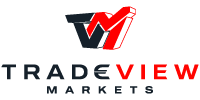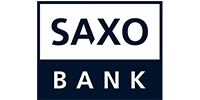Table Of Contents
- The Best CFD Brokers and Trading Platforms in 2026
- What are CFDs?
- How do CFDs Work?
- In Which Countries Can You Trade CFDs?
- Pros and Cons of CFD Trading
- How are CFDs Different from Stocks?
- How are CFDs Different from FOREX?
- How to Choose the Best CFD Broker?
- How to Check the Regulation and Licensing of The Broker?
- What Trading Platforms, Tools, and Features Should a Broker Offer?
- Deposit and Withdrawals: Broker Comparison
- What Customer Service Do You Need from a Broker?
- What Tradable Assets and Instruments Should My Broker Offer?
- How Do Commissions and Fees Impact CFD Traders?
- Can CFD Trading be Profitable?
- How Does Leverage & Stop Out Affect Me as a CFD Trader?
- Leverage
- Stop Out
- Is CFD Trading a Good Idea for Beginners?
- Which Broker Offers the Most CFDs?
- Which CFD Broker Charges the Lowest Fees?
- Conclusion
- Methodology
Best CFD Brokers and Trading Platforms for 2026
With many years of meticulous FOREX broker testing, Arincen stands out as a voice of authority. Our analyses, shaped by exhaustive data collection, are trusted by many. Each year, we gather 120 data points from more than 100 brokers. Our team of more than 20 people collaborate extensively to produce high-quality broker reviews like this one. For a detailed explanation of how we test brokers, navigate to the bottom of this article.
Note: We earn money by selling ads, placements, or through partnerships with some companies we have agreements with, learn more.
The Best CFD Brokers and Trading Platforms in 2026
With so many choices out there, it's tough to select the right broker. In this case, we've done the work for you. Here is a summary of each broker according to specific criteria, along with their pros and cons. After a stringent research exercise, we present our list of the best CFD brokers and trading apps for 2026:
ICM - Capital 91.10: Best Deposit and Withdrawal Broker
Tradeview: 90.00: Trusted broker that offers very low trading costs as well as comprehensive financial literacy materials for its clients.
XTB - 85.55: Best Customer Service Broker
IG - 85.45: Best Regulations Broker plus Convenient Platform
Saxo Bank - 80.09: Excellent Private Trading Platform
CMC Markets - 80.07: More than 9,000 Assets
ThinkMarkets - 80.05: Aimed at the Audience of Traders

ICM capital
ICM Capital is a UK-origin broker that operates worldwide. The firm provides access to diverse trading products, including FOREX, commodities, futures, and indices. ICM offers a secure and efficient trading environment by combining advanced technology with deep liquidity. The company prides itself on delivering high liquidity, tight spreads, mobile trading, and advanced technical analysis.
Why we picked ICM Capital
For its robust regulatory framework and global oversight. Its presence across multiple jurisdictions demonstrates a genuine commitment to investor protection. This foundation makes it a dependable choice for both new and seasoned traders.
| Broker Evaluation | 9.11 |
| Regulations | FCA |
| Minimum Deposit | $200 |
| Islamic Account | yes |
| Payment Methods | Bank transfer, credit card, Electronic Banks, Crypto |
| Main Branch | London |
| Customer Service | Market Opening Hours |
| Demo Account | Yes |
| Trading Platforms | MT4, MT5, C TRADER, Web Platform |
Pros
-
Segregated client funds.
-
Regulated by the UK’s FCA.
-
Long trading history from 2009.
-
More than 300,000 traders, showing trust.
-
Decent funding options.
-
No swaps.
-
MetaTrader4 (MT4) desktop and mobile download.
-
Competitive spreads
-
ECN spreads starting from zero pips.
-
Fast execution and no-requotes.
Cons
-
No proprietary platform.
-
No US services.
-
Limited cryptocurrency offerings.
-
Inactivity fees which deter casual traders.

Tradeview
Tradeview Markets, the parent company of Tradeview Forex, was established in 2004 and is headquartered in the Cayman Islands. It is committed to offering a broad and accessible trading environment through ECN trading with direct access to dozens of banks and prime liquidity providers, ensuring tight spreads. The broker offers access to a wide range of financial instruments, including FOREX, indices, stocks, cryptocurrencies, and commodities.
Why we chose Tradeview
Our choice was influenced by this broker’s transparent fee structure and competitive pricing, with low spreads and clear cost disclosures. Traders benefit from predictable pricing without hidden charges. Cost efficiency is a crucial advantage in high-frequency and active trading environments.
| Broker Evaluation | 10.00 |
| Regulations | SCA |
| Minimum Deposit | $0 |
| Islamic Account | Yes |
| Payment Methods | Bank Transfer, Credit Cards, Crypto, Electronic banks, local deposits |
| Main Branch | New York, United States of America |
| Customer Service | |
| Demo Account | Yes |
| Trading Platforms | Metatrader 4, Metatrader 5, cTrader, API/FIX |
Pros
-
Variety of trading platforms, such as MT4, MT5, cTrader, and Currenex, catering to different trading preferences and strategies.
-
Provides ECN trading through its innovative Liquidity Connector®, granting direct access to over 50 banks and liquidity providers. Offers tight spreads starting from 0 pips.
-
A low minimum deposit of only $0 is required to start trading, making it accessible to a wide range of traders.
-
Offers a broad range of financial instruments, including FOREX, indices, stocks, cryptocurrencies, and commodities, thus catering to diverse trading interests.
-
Offers educational materials and a demo account, suitable for both beginners and experienced traders looking to refine their strategies.
-
Supports automated trading through the use of Expert Advisors (EA) on MT4 and MT5 platforms.
-
Regulated by CIMA, MFSA, and will soon be regulated by the UK’s Financial Conduct Authority (FCA).
-
Offers global customer service in multiple languages, catering to international traders.
-
Offers competitive leverage up to 400:1.
-
Charges no fees for deposits, making it cost-effective for traders to fund their accounts.
Cons
-
While regulated by CIMA and the MFSA, the broker is still in the final stages of becoming regulated by the tier-one FCA.
-
This means, unfortunately, that the broker currently has no way of offering compensation to affected traders if the broker goes bust. Of course, once FCA regulation is obtained, it will be mandatory for the broker to be part of the Financial Services Compensation Scheme (FSCS) where you could be entitled to compensation of up to £85,000.
-
Trades on the Innovative Liquidity Connector® account are subject to commission charges, which may add to trading costs.
-
Lacks a dedicated mobile app, relying instead on the mobile versions of its available trading platforms.
-
While offering high leverage up to 400:1 can be an advantage, it also introduces significant risks, especially for new traders.

XTB
XTB is a well-regarded broker known for its low costs, extensive asset selection, and advanced trading tools. Founded in 2002 in Poland, it has created a proprietary xStation 5 platform that offers robust features like real-time performance stats, sentiment analysis, and heat mapping. XTB's educational resources are comprehensive, catering to all skill levels with video tutorials, guides, and an accessible Trading Academy. XTB is an excellent choice for cost-conscious traders looking for diverse investment options and high-quality support.
Why we chose XTB
We chose this broker for its responsive and multilingual customer support, available across channels when assistance is needed most. Quick, professional responses reduce friction and build trader confidence. Support quality often reflects overall service reliability.
| Broker Evaluation | 8.55 |
| Regulations | FCA |
| Minimum Deposit | 0$ |
| Islamic Account | yes |
| Payment Methods | Bank transfer, Credit Card, Electronic Banks |
| Main Branch | United Kingdom |
| Customer Service | Market Opening Hours |
| Demo Account | Yes |
| Trading Platforms | MT4, xStation |
Pros
-
20-year history of operation.
-
Regulated by the FCA (UK) and CySEC in Cyprus.
-
Globally recognized, having won multiple awards.
-
Some of the lowest FOREX spreads in the market.
-
Offers protection for client accounts.
-
Emphasis on customer service.
-
Excellent support, as well as learning and research tools.
Cons
-
Does not accept US clients.
-
Number of instruments offered is average-sized.
-
No GSLO.
-
No back-testing or automated trading capabilities.
-
No social trading.

IG Group
IG Group is a highly regarded publicly traded broker that is licensed by 10 regulatory bodies, including the FCA, in its home base of the UK. It offers more than 17,000 financial assets to trade, including currencies, commodities, regular stocks, contracts for difference stocks, ETFs, indices, and cryptocurrencies. Further, it has its own state-of-the-art trading platform and offers a relatively low spread.
Why we chose IG Group
For its clear commitment to transparency and fair dealing, with open terms and client-friendly policies. Honest reporting builds trust and fosters long-term client relationships. We value brokers who prioritise clarity over complexity.
| Broker Evaluation | 8.54 |
| Regulations | FCA |
| Minimum Deposit | $250 |
| Islamic Account | yes |
| Payment Methods | Bank transfer - credit card - Electronic Banks |
| Main Branch | United Kingdom |
| Customer Service | Market Opening Hours |
| Demo Account | Yes |
| Trading Platforms | IG Trading, MT4,ProRealTime,L2 Dealer |
Pros
-
Intuitive mobile and tablet platforms.
-
Low spread costs.
-
Client education offering extensive research materials.
-
Regulated by many reputable authorities.
-
UK and EU clients get negative balance protection.
-
Financially stable and publicly-listed.
-
Rapid response to customer service queries.
-
Extensive range of trading assets.
-
Powerful social trading community.
Cons
-
U.S. clients are limited to FOREX trading only.
-
U.S. clients do not receive negative balance protection.
-
IG CFD prices can be high by industry standards.
-
Limited product portfolio of only CFD and options in many countries.

SAXO BANK
Saxo Bank is a well-established, low-risk broker based in Denmark that offers a wide range of trading services to sophisticated traders, institutions, and professional investors. It operates under strict regulatory oversight, ensuring a secure trading environment. The broker provides advanced trading platforms, including SaxoTraderPRO and SaxoTraderGO, catering to high-volume and professional traders with competitive spreads and access to over 71,000 instruments.
Why we chose Saxo Bank
For its comprehensive product range, spanning forex, commodities, indices, and popular CFDs. Such variety allows traders to build diversified portfolios within a single account. This breadth of markets supports evolving strategies and risk preferences.
| Broker Evaluation | 8.09 |
| Regulations | FCA |
| Minimum Deposit | $0 |
| Islamic Account | No |
| Payment Methods | Bank transfer, Credit Card |
| Main Branch | Copenhagen, Denmark |
| Customer Service | Market Opening Hours |
| Demo Account | Yes |
| Trading Platforms | SaxoTrader |
Pros
-
Extensive range of offerings.
-
Offers portfolio-based margin trading for pros.
-
Regulated by top regulators.
-
Excellent trading platforms.
-
Diverse account types.
-
Among the industry’s best research tools.
-
Offers protection for client accounts.
-
No inactivity fee.
-
No platform fees.
-
No minimum funding for entry-level accounts.
Cons
-
Some bonds, options, and futures fees are high.
-
With so many assets, fees can be confusing.
-
High minimum deposit for Platinum and VIP accounts.
-
Does not accept US clients.
-
No MT4 for traders who are used to the platform.
-
No GSLO.
-
No Islamic accounts.

CMC MARKETS
CMC Markets is a global CFD and FOREX broker established in 1989. It is regulated by several authorities globally. The company delivers a formidable offering for traders thanks to excellent pricing, nearly 12,000 tradable instruments, and its proprietary Next Generation trading platform. The platform comes packed with quality research, innovative trading tools, and powerful charting. CMC provides traders with access to an extensive range of CFDs and spread betting across several asset classes.
Why we chose CMC Markets
This broker’s risk management tools and flexible order types stood out to us, enabling traders to tailor positions according to market conditions. Features like stop losses, take profits, and conditional orders provide strategic control. These tools are essential for disciplined trading.
| Broker Evaluation | 8.07 |
| Regulations | FCA |
| Minimum Deposit | 0$ |
| Islamic Account | No |
| Payment Methods | Bank transfer, Credit Card, Electronic Banks |
| Main Branch | United Kingdom |
| Customer Service | Market Opening Hours |
| Demo Account | Yes |
| Trading Platforms | Proprietary Platform, MT4, Web Platform |
Pros
-
Extensive range of offerings.
-
Regulated by the FCA (UK) and other top regulators.
-
Low FOREX fees.
-
Emphasis on education and customer service.
-
Great Web and mobile platforms.
-
Offers protection for client accounts.
-
Research amenities are industry leading.
Cons
-
Does not accept US clients.
-
High CFD spreads for certain indices.
-
It only offers CFD trading, so traders cannot own the underlying asset.
-
Does not support deposits and withdrawals through electronic payments.

think markets
ThinkMarkets is a multi-regulated broker with offices around the globe. The firm is primarily a CFD broker, allowing you to trade across 4,000 instruments in FOREX, futures, commodities, indices, ETFs, crypto, and stocks. With an emphasis on superior customer service, ThinkMarkets maintains round-the-clock support in several languages. It provides different trading accounts suited to individual traders' needs. This includes zero-commission accounts and access to trading guides, analysis tools, and industry news feeds.
Why we chose ThinkMarkets
We selected this broker for its fast and flexible funding options, including bank transfers and card payments. Smooth deposits and withdrawals reduce administrative delays and support efficient capital management. Accessibility of funds is an often-overlooked but essential feature.
| Broker Evaluation | 8.05 |
| Regulations | FCA |
| Minimum Deposit | $0 |
| Islamic Account | Yes |
| Payment Methods | Bank transfer - credit card - Electronic Banks - Crypto |
| Main Branch | Australia |
| Customer Service | Market Opening Hours |
| Demo Account | Yes |
| Trading Platforms | Proprietary Platform, Web Platform, MT4, MT5 |
Pros
-
Beginner assistance is offered through round-the-clock channels.
-
Spreads are as low as 0.0 pips.
-
Round-the-clock expert customer service.
-
CFD shares and indices come at no extra fee.
-
Zero broker fees for FOREX trading.
-
Technical analysis and quality market information.
Cons
-
No binary options are offered.
-
Commissions are charged for two account types.
-
Range of tradeable assets is not as wide as some competitors.
-
No US clients allowed.
There is a high degree of risk involved in trading securities like FOREX, or CFDs, which are highly complex instruments. As a trader, you could be exposed to excessive leverage, questionable broker tactics, market volatility, and limited regulatory protection. Despite your best trading techniques and risk management strategies, your efforts may not be profitable, and you could suffer losses.
What are CFDs?
As noted in the introduction, CFDs are tradable instruments that enable you to speculate on the underlying price of securities or assets without actually owning them. You may be wondering what it means to speculate on the underlying price. In simple terms, you are predicting the future value of an asset, and you are so sure of your prediction that you are putting your money on the table as a wager it will happen. Your broker takes your money and places the wager on your behalf. If your prediction comes true, you make money; but if it does not, you lose out.
A CFD trade is in place after a trader has inked a contract with their broker to buy or sell a particular underlying asset or security at a specific future price, which is different from the current price. By doing so, the trader speculates on price fluctuations that may occur in the “window” of time between when the contract takes effect and when it expires (or when the trade is finally closed).
In sharp contrast to the process of purchasing asset classes such as company stock, where you become the owner of those equity shares, buying a CFD means you never own the underlying asset.
As the price of the underlying asset fluctuates, the CFD trader will experience either an unrealized profit or an unrealized loss. A CFD trader can, therefore, experience one of three scenarios. If the trade is closed while the position is still profitable, a profit will be realized. Likewise, if the trade is unprofitable when closed, the loss becomes realized. Finally, neither a profit or loss will occur if the price remains flat.
In layperson’s language, if a trader buys a CFD on the EUR/USD pair and the contract price moves higher than had been paid for initially, the unrealized profit will be the difference between those two prices, minus of course, any applicable trading costs the broker may charge.
How do CFDs Work?
CFDs are a good option if you are looking for a financial asset to trade in today's retail marketplace. It is a trading method that is supported by most brokers, and you can use them to trade FOREX, stocks, indices, commodities and cryptocurrencies.
CFDs are a good trading method to use to trade with leverage as you can gain exposure to a larger position than your initial investment. Another reason they can be attractive is because CFDs typically offer lower fees and commissions compared to other forms of trading, such as futures or options. This can help you keep your costs in check.
They are flexible instruments that allow you to open and close positions at any time and use them in conjunction with a variety of trading strategies, such as scalping, day trading, or swing trading. If you are looking for a flexible, accessible and cost-effective way to trade a range of different markets and asset classes, CFDs may be for you.
In Which Countries Can You Trade CFDs?
Trading with an unregulated broker can have dire consequences. Regulated brokers must comply with strict rules to protect your interests. Unregulated brokers may engage in fraudulent activities, such as misappropriating client funds, and may not have adequate measures in place to protect your data. For a list of the best regulators, read our article here.
Pros and Cons of CFD Trading
-
CFD traders have a wide range of markets available to them, including instruments that might not necessarily be available in their country of residence.
-
With CFDs, you can easily go long (buy) and short (sell), freely switching between the two.
-
CFD trades, executed instantly as they are, carry less risk of slippage.
-
Compared to trading underlying shares, CFD trading platforms tend to have low trading fees and reduced commission charges.
-
Some markets have day trading minimums or place limits on the number of day trades that can be made within certain accounts. The CFD market is not bound by these restrictions.
-
CFDs provide higher leverage than traditional trading.
-
The risks associated with trading with leverage from a margin account are exponentially heightened. Indeed, it is possible to lose your entire balance or even go into the red.
-
When holding a position overnight, CFD traders carry charges that may become prohibitive.
-
With CFDs, traders are ineligible for such benefits as dividends and shareholder rights if they speculate in shares.
-
In most Western economies, CFD trades are subject to a capital gains tax.
-
Other CFD risks include weak industry regulation, potential lack of liquidity, and the need to maintain an adequate margin.
How are CFDs Different from Stocks?
This is a question that new traders often ask. When you buy stocks through an online broker, your broker holds these shares on your behalf. Being the “shareholder of record,” you gain certain rights and privileges. These range from enjoying voting rights and taking part in proxy company meetings to also becoming eligible to receive potential dividends.
While CFD traders do not enjoy any such rights, in some rare instances CFD brokers may offer traders the ability to receive dividends, akin to the trading of real (underlying) stocks.
Leverage: This is one key area where CFDs operate very differently to trading cash equities (stocks). Indeed, CFD traders can access leverage while in most cases leverage is not available when trading cash stocks.
Risk: Share CFDs are much riskier than trading in traditional underlying stocks. This is partly because of the leverage often offered to CFD traders and not offered to those investing in traditional stocks. Indeed, CFD traders can see their entire balance wiped out or even go into the negative, in some cases.
How are CFDs Different from FOREX?
How to Choose the Best CFD Broker?
How to Check the Regulation and Licensing of The Broker?
It is important to choose a CFD broker that is regulated by a reputable financial authority. This ensures that the broker is subject to certain rules and regulations designed to protect traders, such as maintaining sufficient capital and segregating client funds from the broker's own funds. Here are some of the best regulators in the world:
Financial Conduct Authority (FCA): The FCA is the UK's financial regulator and one of the most respected in the world. FCA-regulated brokers are required to meet stringent requirements, including holding sufficient capital, segregating client funds, and providing regular reporting.
Australian Securities and Investments Commission (ASIC): ASIC is the Australian financial regulator and is known for its tough stance on financial misconduct. ASIC-regulated brokers are required to meet similar requirements to FCA-regulated brokers.
Commodity Futures Trading Commission (CFTC): The CFTC is the US derivatives regulator and has a strong focus on protecting retail traders.
Ensure that a reputable authority regulates your chosen broker. Brokers offering access to CFD trading must be regulated by the same regulators, regardless of the assets they offer, such as FOREX, crypto, commodities, and indices. If you want to read more about some of the best-regarded regulators, read our article on regulation here. Remember that you do not have to use a broker with international regulation if your local broker is regulated by a solid local regulator.
What Trading Platforms, Tools, and Features Should a Broker Offer?
When choosing the perfect trading platform, retail traders should consider an array of features that cater to both novice and seasoned traders alike. In our experience, MT4 has become a staple in the online trading world for its user-friendliness, speed of execution and advanced tools. This platform has been around for many years, first created as a FOREX-only trading platform that has since been expanded to offer other instruments, like stocks, indices, and commodities. In any event, whether you choose a broker with MT4, or your broker uses another platform, these are the elements of which you need to be aware:
Platform Accessibility is the first consideration. Whether it's web-based or a downloadable application, a top-notch trading platform should offer flexibility in terms of access.
Customization and User Interface. Traders need to mold the platform according to their preferences, allowing them to set up their trading environment precisely how they want.
Technical Analysis Tools. The platform should be equipped with robust technical indicators to aid traders in making informed decisions.
Risk Management Tools are another pivotal aspect. Trading inherently comes with risks, and a high-quality platform should provide instruments that allow traders to set stop-losses, take-profits, and other crucial order types.
For those new to the trading world, Performance and Reliability cannot be overlooked. Beginner traders especially need a platform that operates seamlessly with minimal downtimes or glitches. This ensures a smooth trading journey, allowing them to focus on market movements rather than technical hiccups.
Finally, the Learning and Support element is essential. The best brokers will offer platforms that are not only intuitive but also come with tutorials, guides, and responsive customer support to assist traders in navigating any challenges they might face.
Deposit and Withdrawals: Broker Comparison
Having access to a broker that streamlines the deposit and withdrawal process is crucial for retail traders. In such a fast-moving environment, financial fluidity is key. Opportunities can rise and fall quickly, requiring traders to act swiftly. A broker with an efficient funding process allows you to capitalize on these opportunities by quickly depositing funds to execute trades or withdrawing profits with minimal delay. Remember, a streamlined process reduces operational stress and enhances the overall trading experience, allowing you to focus more on market analysis and strategy rather than administrative hassles.
Our pricing review draws on Arincen’s independent research, where we analysed broker cost structures using both advertized rates and real-world trading data. By comparing spreads, commissions, and related fees, we aimed to reflect what traders are likely to experience. The outcome of this assessment is displayed in the table below.







| Method | Credit Card | Wire Transfer | Skrill | Neteller | Cryptocurrency | PayPal |
| Deposit fee | 0$ | $0 + Bank commission | 1.9% | 2.5% | Unavailable | 3.75% |
| Withdrawal fee | 0$ | $15 | 1% | $0 | Unavailable | 2% |
What Customer Service Do You Need from a Broker?
- Accessibility and responsiveness through multiple channels like phone, email, live chat, and social media.
- Knowledgeable support staff with an understanding of trading platforms, market operations, and financial products.
- Account management assistance including deposits, withdrawals, and understanding account statements.
- Technical support related to the trading platform, troubleshooting, and features.
- Educational resources.
- Problem resolution such as trade execution problems.
- Market information and tools to aid in making informed trading decisions.
- Personalized services such as a dedicated account manager.
Recommended Brokers
Based on in-house analysis by the Arincen team, we reviewed pricing data from both official broker websites and live market conditions. This included spreads, commissions, and trading fees observed in real use. The results of that comparison are summarized in the table below.







| Live Chat | Phone | |||
| Available | Available | Available | Available | Available |
| Quick response | Quick response | Fast | Fast | Fast |
What Tradable Assets and Instruments Should My Broker Offer?
Choosing the right broker means balancing cost, reliability, and market access. Compare trading fees, asset coverage, and leverage conditions across regulated platforms. Study execution speed, slippage history, and available analytical tools. A serious trader picks a broker that performs well under real market pressure, not just on paper.
- FOREX
- Commodities
- CFDs
- Equities or Stocks
- Indices
- Cryptocurrencies
- Bonds
- Options and Futures
As part of our evaluation process, the Arincen team gathered and cross-checked broker pricing from official documentation and live trading environments. This approach allowed us to compare spreads, commissions, and fees under actual market conditions. The breakdown of our findings is presented in the table that follows.
| Brokers | Currency pairs | Stocks | Indices | Commodities | Crypto | ETFs |
| Tradview | 80 Pairs | 5000 Shares | 10 Indices | 10 Commodity | 30 Coins | Unavailable |
| ICM Capital | 67 Pairs | 89 Shares | 17 Indices | 12 Commodity | 6 Coins | Unavailable |
| XTB | 57 Pairs | 1848 Shares | 36 Indices | 22 Commodity | 22 Coins | 135 ETFs |
| IG | 81 Pairs | 21714 Shares | 49 Indices | 39 Commodity | 11 Coins | 12858 ETFs |
| Saxo Bank | 320 Pairs | 22000 Shares | 49 Indices | 39 Commodity | 9 Coins | 6700 ETFs |
| CMC Markets | 330 Pairs | 8000 Shares | 80 Indices | 100 Commodity | 18 Coins | 200 ETFs |
| Think Markets | 46 Pairs | 3750 Shares | 15 Indices | 11 Commodity | 21 Coins | 350 ETFs |
How Do Commissions and Fees Impact CFD Traders?
Trading fees can sometimes be hard to understand. Be sure to check how these fees compare with industry standards:Spreads:There are two main kinds of spread, one is fixed and the other is variable. Generally, the spread refers to the gap between two prices, such as the bid/ask rate in a currency exchange rate. If you are getting a spread of 1.4 pips for the EUR/USD, you can rest easy that you are getting a good deal at present market rates. The narrower the better, this means that a spread of 1.4 pips is better than a spread of 2 pips. This article explains more about this important concept.Commission:A fee charged per trade, usually calculated as a percentage of the trade value.Rollover Fees:Charged when you hold a position overnight. This is because they assume the risk of the market changing adversely.Withdrawal and Deposit Fees:Fees for transferring funds to and from your broker account.Subscription or Inactivity Fees:Some brokers charge a monthly fee or inactivity fee if you don't meet certain trading requirements.Conversion Fees:These are for trading in a different currency.Guaranteed Stop-Loss Fees:This is for protecting against losses.
To keep track of trading fees, make sure you research different brokers and trading platforms, as well as compare the charges of each platform. Remember that trading fees can have a significant impact on your trading profits, so it's important to choose a platform that offers competitive fees and suits your trading needs.
To assess trading costs accurately, the Arincen research team examined broker pricing across multiple sources, combining published fee schedules with observed trading conditions. Our analysis focuses on spreads, commissions, and additional charges that impact traders in practice. You can see the consolidated findings in the table that follows.







| Spread | Commission | Swap | Islamic Account | |
| Currencies | Starting from 1.3 Pips | 0$ | No | Available |
| Stocks | Starting from 18 Pips | 0$ | Yes | Unavailable |
| Commodities | Starting from 2.3 Pips | 0$ | No | Available |
| Indices | Starting from 4 Pips | 0$ | Yes | Unavailable |
Can CFD Trading be Profitable?
Choose a broker under the watch of a trusted regulatory authority who is renowned for their rigorous oversight. There's no obligation to opt for an overseas regulator; reputable brokers also operate within your own jurisdiction. To confirm if your broker is registered with a regulator, navigate to the regulator’s official website.
How Does Leverage & Stop Out Affect Me as a CFD Trader?
Leverage
Different regulators have different guiding policies relative to leverage. Key regulators have implemented specific rules to limit the leverage offered to retail traders as a means of consumer protection.
Here are selected leverage rules for CFDs according to some key regulators:
European Securities and Markets Authority (ESMA)
ESMA caps the leverage for CFDs of major currency pairs in FOREX trading at 30:1. This means that traders need to have a minimum of 5% margin of the total trade value.
CFTC
In the United States, CFD trading isn't permitted for retail traders. However, for related products, like futures, there are specific margin requirements set by exchanges and overseen by the CFTC.
ASIC
ASIC has recently implemented rules capping the leverage for CFDs of major currency pairs for retail traders at 30:1, aligning with ESMA's restrictions.
FCA
The FCA has adopted rules like ESMA, capping leverage for CFDs of major currency pairs at 30:1 for retail traders.
As we can see, responsible regulators closely monitor leverage levels. Leverage is a double-edged sword because you can make a lot of money, but you can just as easily become financially ruined!
Similarly with stop outs, many major regulators offer negative balance protection. This is important as your open positions are automatically closed by the broker due to insufficient margin in the account. This mechanism protects you from accruing negative balances and owing money to the broker.
Retail traders should be cautious when trading with high leverage due to the significant risks involved. While leverage can increase gains, it can also magnify losses. You should be careful when trading with high leverage, that’s why you need the right knowledge and experience to handle the highs and lows that come with this form of trading.
Stop Out
The term "stop out" refers to a situation where a broker automatically closes some or all of your open positions to prevent your account from going into a negative balance. This is most relevant for traders using leverage. The stop-out level is typically expressed as a percentage, representing the margin level at which the broker starts to close out open trades.
0% Stop-Out Level:
At this level, when the margin level of the account drops to 0%, the broker will automatically close all open positions. This is the most aggressive stop out level. As soon as the equity in the account equals the required margin, the positions are liquidated. This gives no room for your positions to recover even if the market turns in your favor immediately after reaching this level.
50% Stop-Out Level:
Here, if the margin level drops to 50%, the broker will start closing out positions.
It offers a bit more flexibility when compared to the 0% level. The broker will typically close the most unprofitable positions first, and if that's not enough to bring the margin level back above 50%, more positions will be closed until it's achieved.
100% Stop-Out Level:
A 100% stop out level means that when a trader's equity equals the margin required for the open positions, the broker will start closing those positions. It’s important to know that this is similar to the 0% level but might be worded differently, based on broker terminology.
In any case, the specific percentage and the order in which positions are closed can vary among brokers, so it's essential for traders to be aware of their broker's policy on stop-out levels.
It's worth noting that while stop-out procedures are meant to protect traders from negative balances, they can lead to significant losses in volatile markets if positions are closed automatically, especially if the market quickly reverses after the stop out. As such, using protective measures like stop-loss orders and not over-leveraging is always a good ploy.
Is CFD Trading a Good Idea for Beginners?
Tip: Invest in Your knowledge
For every aspiring retail trader, knowledge is key to a successful trading journey. We invite you to delve into Arincen's goldmine of insights, strategies, and expert analyses. Whether you're just embarking on your trading venture or trying to level up your trading game, our resources are designed to give you all the information you need. Visit our educational resources here.
Which Broker Offers the Most CFDs?
Which CFD Broker Charges the Lowest Fees?
Typically, CFD brokers that charge the lowest fees are those that also levy the lowest effective spreads, determined simply by calculating the broker’s average spreads, and then factoring in any per-trade commissions. In 2026, our research found that Tickmill reigned supreme in this category, with the lowest effective spreads out of our list of the best brokers in the industry.
Conclusion
Methodology
The team at Arincen collected more than 120 pieces of data covering more than 100 licensed FOREX companies. Data collection was done in three ways:
Companies’ websites.
Other websites that have ranked FOREX companies.
A survey questionnaire (referred to here as Survey “1”) was sent to the companies invited to participate in the exercise.
We have identified 12 criteria for our assessment, each containing several aspects and carrying its relative weight. These include licensing, deposits and withdrawals, number of assets etc.
Afterwards, we validated the data by:
Registering with FOREX companies as a secret shopper and/or as Arincen.
Survey number “2,” in which we asked these companies’ customers for important feedback and experience.
The next step saw us evaluate and rank each company, relying on the hard work of 15 Arincen employees. We were very careful in ensuring the most accurate assessment possible, including taking into account different languages, as well as the various mobile-app operating systems, e.g., Apple, Samsung etc.
To add credibility to our research project, we sent a final and third survey (referred to here as Survey “3”) to enable participating FOREX companies to evaluate our research and whether it accurately reflects the realities on the ground. We were fortunate enough to receive a mark of 9.9 out of 10! We have kept to a minimum the margin of error, which stood at a measly 1%. To learn more about how we came up with the evaluation, please click here.
CFDs are complex instruments and come with a high risk of losing money rapidly due to leverage. 74% of retail investor accounts lose money when trading CFDs with this provider. You should consider whether you understand how CFDs work, and whether you can afford to take the high risk of losing your money.
FAQ
You can trade CFDs in stocks, commodities, or FOREX. The profits from CFD trading are treated as regular profits from any other financial asset. Their treatment varies greatly from country to country and depends on local tax laws and regulations. It is always a good idea to contact a tax expert in your country to fully understand your tax liability. However, in general, many countries consider profits from CFD trading either as capital gains or income, depending on factors such as the frequency of trading, the purpose of the trading activity, and other circumstances.
CFDs are financial instruments that allow traders to speculate on the rising or falling prices of underlying assets without actually owning the assets themselves. A trader can initiate a contract with a broker to exchange the price difference of an underlying asset at a time in the future. In other words, the trader does not own the asset outright, but signs an agreement with a broker that on a defined date in the future, if the asset in question has lost or gained value in any direction, either the broker pays the trader, or the trader pays the broker. It takes a great deal of skill for the average trader to predict with any reliability how respective currencies, stocks or commodities will change in value over time, making CFD trading a highly risky business.
Yes, CFD trading can be profitable and some investors can reap handsome profits when trading these financial products. However, all this comes at a cost as the oft-leveraged CFDs are very risky instruments. Leverage refers to the loan extended by the broker, which allows the trader to invest a much larger amount of money than they actually own. With over three quarters of retail trading accounts losing money when trading CFDs, these instruments are by no means a guarantee for getting rich over night.
CFDs are high-risk instruments and are, therefore, not recommended for beginners. CFDs are very risky because they are leveraged products. Leverage in this case means that you trade with your own money plus the funds your broker lends you. While you can open much larger positions this way, you can magnify both your profits and your losses. CFDs are widely used by experienced traders with a deep understanding of financial markets and investment strategies. As we had argued earlier in the article, for absolute beginners, it makes more sense to open a CFD trade demo account.
As you narrow the list of CFD brokers from which you want to choose, it is important to consider several factors, ranging from regulation, costs, and tradable asset classes to the trading platforms available. A well-regulated broker ensures the safety of your funds from internal company fraud or bankruptcy. Always look out for brokers that are regulated by tier-1 watchdogs.













